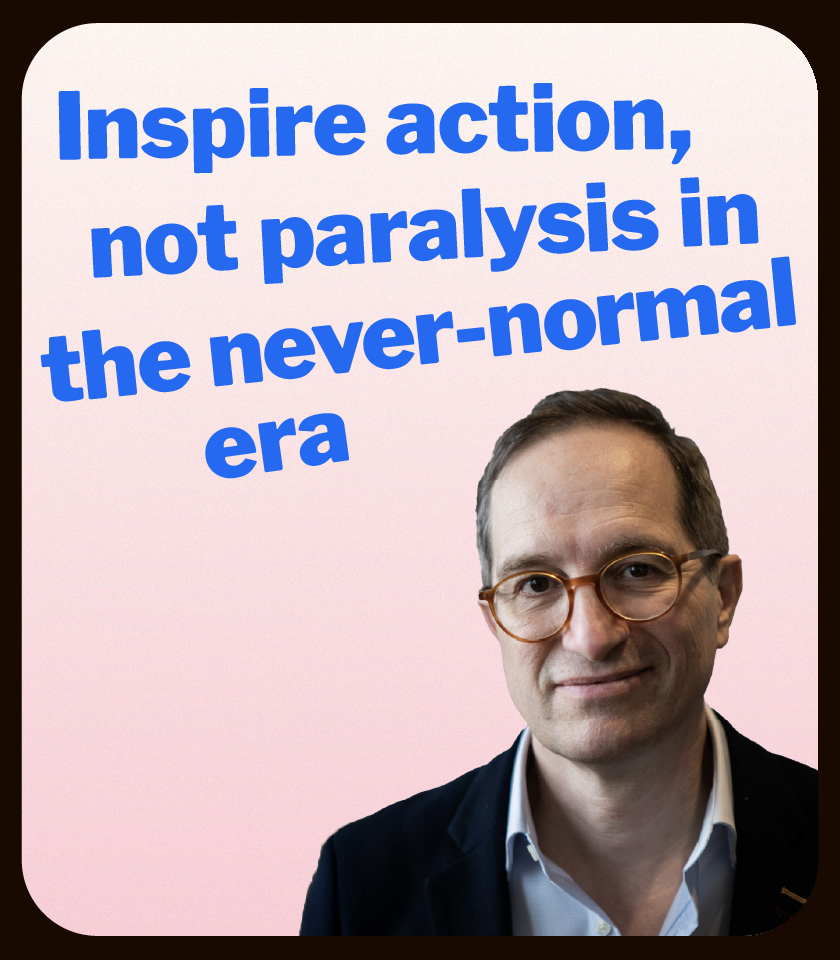Ever read a tweet, seen a meme, or heard a joke that’s so stunningly accurate it hits you right in the feels? Ever think about why that is? It has a lot to do with why we are so drawn to comedy in the first place. Comedy has this incredible ability to tap into human truths that are both so relatable in how they are articulated and so surprising in what they reveal. Put simply, comedy is about insights into the human experience.
As a strategist, I’ve learned that there is great similarity in writing comedy and crafting insights if done right. Too often we forget what makes a successful insight and get caught up just trying to rewrite data in fancier verbiage. Looking to comedy is a great way to hit refresh when your insights are feeling stale. Here’s why.
What makes something funny also makes a good insight
The best comedy isn’t just funny, it evokes a whole host of other emotions. Have you laughed at something that should have been sad? The best insights should also inspire you to feel more nuanced emotions. That’s why, when you’re looking to add some depth to your insights, jokes are an effective tool for striking the right chord.
Vulnerability is one emotion that stands out as many comics often share personal anecdotes from their own lives that are embarrassing or painful. This vulnerability works because it makes the comedy more relatable. Great insights too, will be most successful if they can expose something you didn’t realize about the human experience. In this way, they surprise you, making you think “Huh, I never thought of it like that.”
Comics expose themselves to a lot of ridicule by being vulnerable. The best comics often speak about experiences other people won’t or can’t. Similarly, great insights are truths that we have yet to admit to ourselves.
The comedic approach is a lot like crafting insights
Arriving at good comedy takes trial and error. Just think about how a standup special is made. A comic will write material and test it out on the road – these different audiences act as focus groups before the comedian films the final show. Each time they perform, they learn a little about what works and what doesn’t – often going back to the drawing board to perfect each joke.
Insights must also be pressure tested with different audiences to see how well they work. After all, insights are meant to inspire our teams. That requires studying how people interpret them. If they’re not landing how we intended them, not making sense, or not providing the reaction we wanted, we know we need to revisit them. It doesn’t mean they are directionally wrong, but like writing jokes, changing a few words can completely change how they’re received.
Our finest selections of insightful comedy
The joke: @Lottyburns says, “You’re offered $50,000 but if you accept it, the person you hate most in the entire world gets $100,000. Are you taking it?” To which @ChrisPurchase replies, “Yes. Why wouldn’t I want $150,000.” (source)
The insight: Of all the hate-filled emotions we experience, we reserve the most intense of these feelings for ourselves.
The joke: George Carlin’s infamous “Soft Language” joke made its way into several of his specials. In it, he ridicules the use of euphemisms like PTSD for post-traumatic stress disorder to “conceal reality.” He argues that instead of describing things with accuracy and truth, we’ve started using euphemistic expressions that "take the life out of life.” (source)
The insight: “Americans have trouble facing the truth…so they invent a kind of a soft language to protect themselves from it.”
The joke: “I like meat, I do. But you know who seems to be really obsessed with meat? Vegetarians. For people that don't like meat, they seem to eat a lot of vegetables that are mashed up and shaped to look like meat. ‘I find meat repulsive. I'll have a veggie burger with fake bacon. And can you serve it to me dressed like a cow?’” As told by the carnivorous comedian Jim Gaffigan. (source)
The insight: Not eating meat can make vegetarians feel like outsiders, but eating vegetables redesigned as meat helps them join the conversation.
So, what?
Next time you need to craft an insight, let comedy be your inspiration. Dig into your emotions, be vulnerable, and don’t be afraid to say something bold. Then test it out. See what sticks, what doesn’t, and wordsmith as needed. Loading up your briefs with deeper insights helps shrink the target your creative team is throwing darts at – helping them ideate smarter and dream even bigger.




.png)



